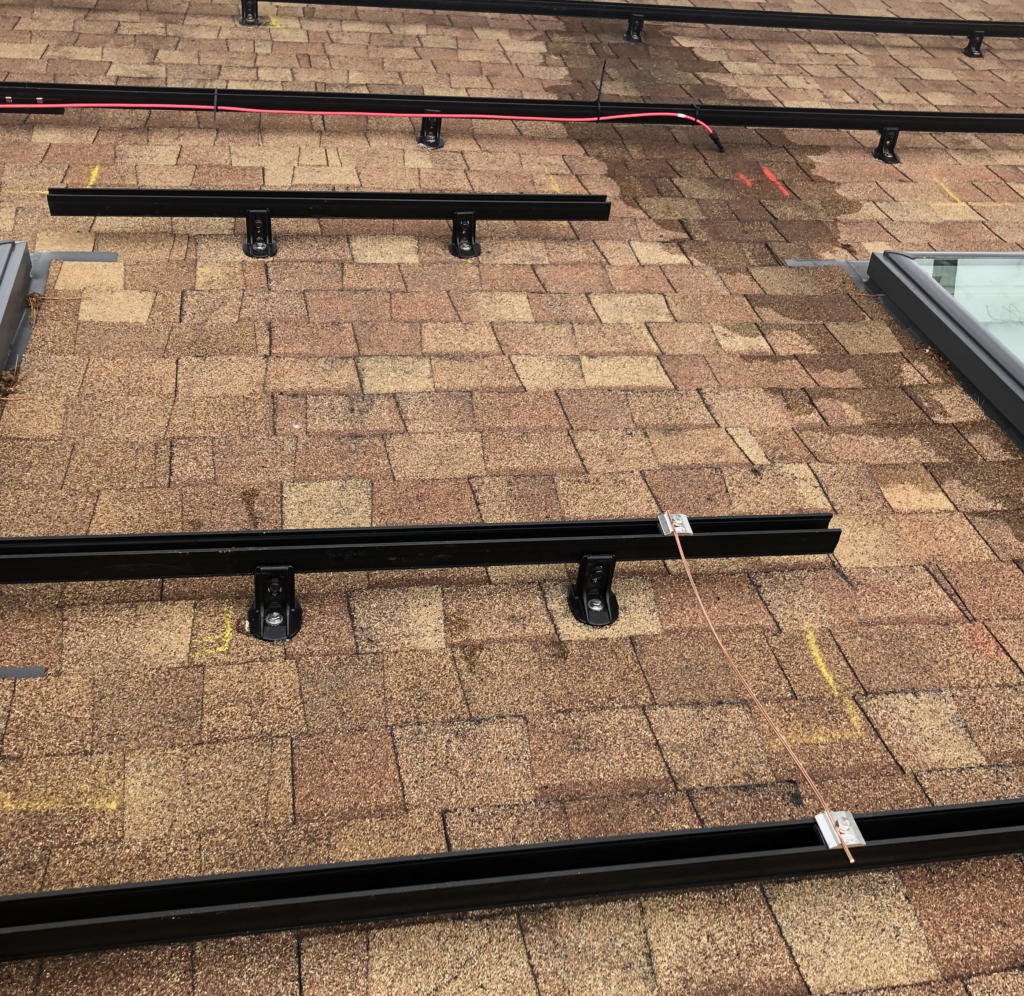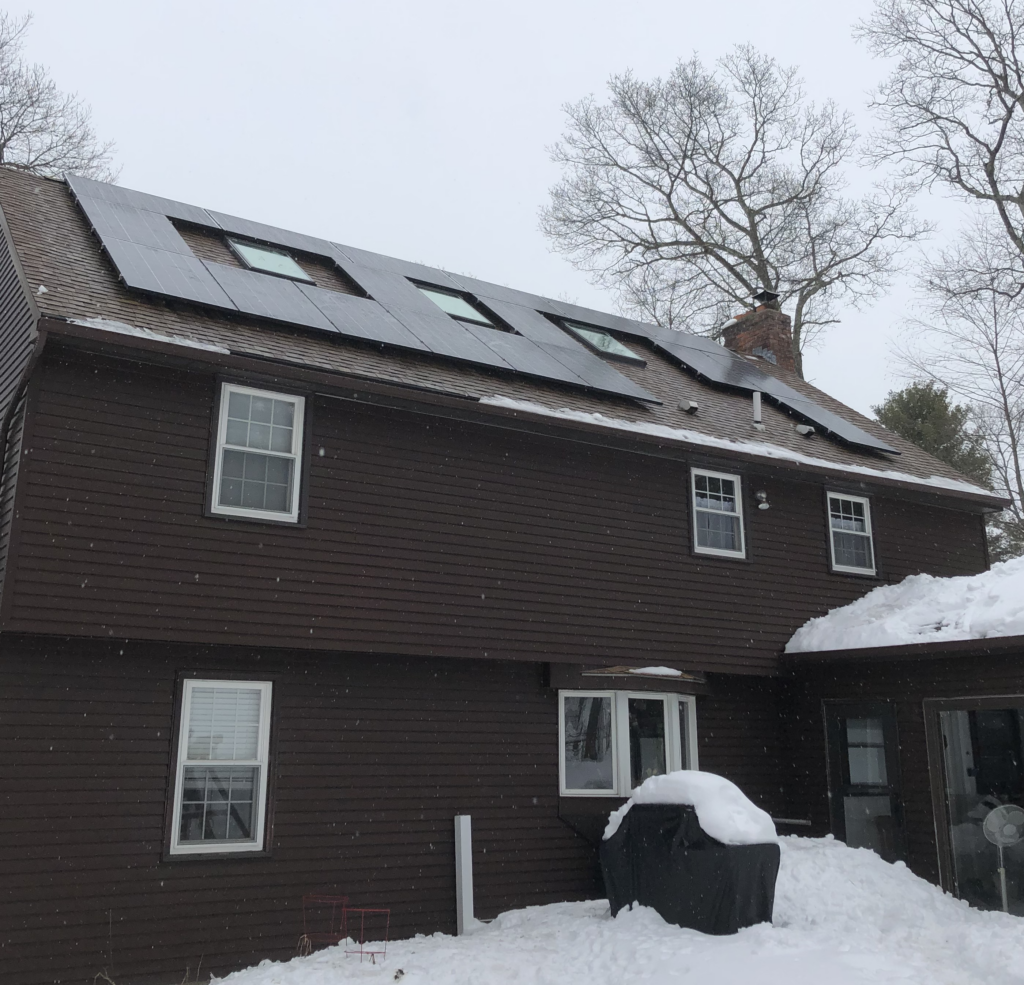A Journey to Solar Energy Savings
Aaron Vandesteen of North Grafton, MA: Solar Electric
“Getting it done sooner rather than later was a great decision on my part.”
Aaron Vandesteen and his family live in a recently purchased, completely electric home, so the idea of reducing the costs of electricity – even by $100 – was incredibly appealing. Although it was a financial decision primarily, the environmental benefits solar provided were also a crucial factor, as he was always looking for ways to reduce his carbon footprint. He believes that there is a move across the country towards clean energy, and that people should be using their own real estate to make an impact in whatever way they can. Installing solar panels was one way for him to do just that.
When he was first looking to install solar, his main concern was the potential savings he would receive. Although there were a lot of trees surrounding his home, which he did not want to cut down due to the extra $10,000 cost. When he consulted with New England Clean Energy, he learned that there would be a good cost reduction even if he kept the trees. 
Vandesteen was drawn to New England Clean Energy because of their approach to the market. He liked how New England Clean Energy was not a giant company that was trying to maximize their profit by using leases like other surrounding solar companies. He liked how their methods looked to help customers maximize their savings. Vandesteen was also impressed by Mark Durrenberger’s Energy Miser blog as the articles were intriguing and showed a general mindset he appreciated.
“The blogs showed a belief that me and many other Americans share. It stresses that using less energy is the best place to start for cost reduction. For example, shut off the AC and turn off the lights when you are not in the room – that kind of ideology. I really liked that,” Vandesteen said.
Although there were some bumps along the way like having some questions about net metering not explained fully and having initial connection errors with his solar network, the process went extremely smoothly. He talked in depth with a solar consultant to determine which panels had the best warranty and performance, and ended up paying for the Sharp brand panels, which have a 30-year warranty, with a $23,000 check in December of 2020. Paying in cash allowed him to get a $700 rebate and closing the deal before the end of 2020 allowed him to get a $1000 discount from New England Clean Energy. 
“Getting it done sooner rather than later was a great decision on my part,” Vandesteen remarked.
Vandesteen received a 22% tax rebate on the full cost of what was paid, allowing him to get $5700 back on a tax rebate check. Vandesteen also takes part in the SMART program; he gets a direct check from National Grid based on what he produces each month. Although his production levels are not the highest, he still gets checks for around $15 to $30 each month.
Since his system has been installed his annual electricity cost has decreased from $3529 in 2020 to $2338 in 2023, granting him $2244 in savings so far.
“I don’t have a zero-energy bill but I’m saving $1000 a year with the system, which was the whole goal of installing the system,” Vandesteen explained.
The installation team went to his house in February 2021 and installed the panels on his sloped roof without trouble and with only a spare bolt left in the snow after the installation, and the system was approved and ready to turn on in April.
Switching to solar has benefitted Vandesteen financially, allowing him and his family to have a lower electricity bill as well as helping him to be able to do more things with his money. Besides that, he remarked that it has not really made an impact overall.
“Energy is such an invisible thing we all use. I have used energy since I was a kid. Now, I am just more responsible with how I use it,” Vandesteen explained.
After living with solar energy for a few years, Vandesteen had some advice for potential solar customers.
“Do not lease your solar panels. Buy them, take out a loan if you need to, or just pay with cash. To really make the most of the investment and get the best savings overall, it is better to pay a little bit more at the beginning, then to pay someone money who is trying to get money from you roof real estate.”

